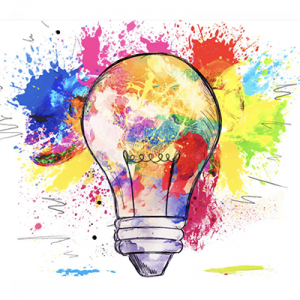Description
 Grounded in social learning theories, participatory culture and learning ecologies, multiliteracies and multimodalities theories, critical race theory, inquiry-based learning, inclusive design-based thinking, and 21st-century pedagogies, candidates will learn to merge theory with practice as makers and creators. Through research, design, experimentation, building, and inventing, participants will explore the educational, cultural, and social value of makerspaces. They will delve into the importance of cultivating creative and growth mindsets through maker mentalities and entrepreneurial mindsets to build the knowledge, confidence, and skills to effectively infuse, implement, and assess makerspaces in classrooms, libraries, and professional and public physical and virtual spaces. This course explores constructivist and cultural theories in education and digital engagement and their significance in designing dynamic, critical, and inclusive learner-focused environments that support 21st-century modes of making. Candidates will explore the history and design of makerspaces and maker challenges and provocations from Equity, Diversity, Inclusion, Decolonization, and Anti-racism (EDIDA) frameworks using no-tech, low-tech, and high-tech tools (Kafai & Jayathirtha, 2020) all through an interactive, inclusive, and technology-supported learning environment.
Grounded in social learning theories, participatory culture and learning ecologies, multiliteracies and multimodalities theories, critical race theory, inquiry-based learning, inclusive design-based thinking, and 21st-century pedagogies, candidates will learn to merge theory with practice as makers and creators. Through research, design, experimentation, building, and inventing, participants will explore the educational, cultural, and social value of makerspaces. They will delve into the importance of cultivating creative and growth mindsets through maker mentalities and entrepreneurial mindsets to build the knowledge, confidence, and skills to effectively infuse, implement, and assess makerspaces in classrooms, libraries, and professional and public physical and virtual spaces. This course explores constructivist and cultural theories in education and digital engagement and their significance in designing dynamic, critical, and inclusive learner-focused environments that support 21st-century modes of making. Candidates will explore the history and design of makerspaces and maker challenges and provocations from Equity, Diversity, Inclusion, Decolonization, and Anti-racism (EDIDA) frameworks using no-tech, low-tech, and high-tech tools (Kafai & Jayathirtha, 2020) all through an interactive, inclusive, and technology-supported learning environment.
Learning Objectives
In this course you will:
- Review literature related to participatory culture and learning, makerspaces, STEAM, the imperativeness of infusing EDIDA frameworks into maker design, educational technologies used to enhance and propel learners’ maker experiences, and maker theory, learning, and pedagogy.
- Engage with theories and practices related to inclusive design-based thinking, social learning theories, critical literacies, participatory culture and learning, multiliteracies, new literacies, constructivism, multimodalities, critical race theory, queer theory, 21st-century pedagogies, and educational technology.
- Apply these theories to design your own makerspace challenges, provocations, and design practices using no tech, low tech, and high-tech options (Kafai & Jayathirtha, 2020) .
- Actively engage in design thinking and maker challenges, thinking about the learning and pedagogy that surround such challenges, and align learning to your own classroom content or current practices.
- Experiment with a variety of no tech, low tech, and high-tech tools and platforms.
- Work collaboratively with peers in online asynchronous and synchronous learning environments with the option of an in-person environment to design and develop your own makerspace challenges from EDIDA frameworks (Equity, Diversity, Inclusion, Decolonization, Anti-racism)
- Learn to assess maker challenges and provocation effectively and inclusively through the develop and design of assessment tools and criteria.
- Extrapolate from your own design process what you think is meaningfully ‘learned’ through inclusive making and designing.
Activities & Theories
Activities in this course include:
- Asynchronous online learning
- Flipped learning
- The option of a weekend face-to-face (inquiry-based, student-centred, design-based, experiential, and technology-rich), online hands-on synchronous learning session, or asynchronous online learning session.
Theories explored include:
- Participatory Culture
- Inclusive Design-based thinking
- Inquiry-based learning
- Constructionism and Constructivism
- Social learning theory
- Emergent theory
- Experiential learning
- Project-based learning
- Inclusionary learning
- Educational Technology
- Theory of Generative Interactions
- Critical Race Theory
- Diversity and Inclusion’s Theory of Change
- Intersectionality
Readings & Resources
This course uses an open textbook as well as other resources, including case studies, online videos, and other online reference materials, along with facilitated online discussions, group work, and iterative assignment work to reach course outcomes.
Examples of required readings and resources
- Cope, B., & Kalantzis, M. (2023, January 17). Jenkins on participatory culture. New Learning Online.
- Edutopia. (2018, November 16). Learning problem solving and growth mindset in a makerspace. [Video]. YouTube.
- Rosenheck, L. (2020). Making learning visible in makerspaces. Institute for the Future of Education.
- Kye, H. (2020). Who is welcome here? A culturally responsive content analysis of makerspace websites. Journal of Pre-College Engineering Education Research, 10(2).
- Melo, M. (2020). How do makerspaces communicate who belongs? Examining gender inclusion through the analysis of user journey maps in a makerspace. Journal of Learning Spaces, 9(1), 59-68.
Assignments & Assessment
- Getting to Know the Maker-in-You (complete/incomplete)
- Critical Learning Tasks and Peer Responses (30%)
- Inclusive Maker Challenges and Provocations (30%)
- Unit/Lesson of Learning or Workshop with Assessment (20%)
- Maker e-Portfolio with reflection (20%)
Minor course topic, activity, reading/resource, and assignment details may change from year to year.